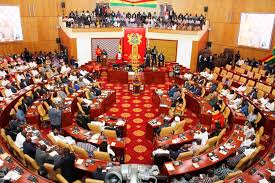Parliamentary Minority Urges Swift Government Response to U.S. Travel Advisory on Ghana

The Minority Caucus of Ghana’s Parliament, particularly the Foreign Affairs Committee, has called for immediate action from the government following the issuance of a Level 2 Travel Advisory by the United States. This advisory, issued by the U.S. Department of State, warns American citizens to “exercise increased caution” when traveling to Ghana due to concerns over violent crimes such as carjackings, street muggings, assaults, and rape. The advisory also highlights organized crime, civil unrest, and other security risks, which have prompted the Minority to express deep concern over Ghana’s declining image on the global stage.
In a statement signed by Nana Asafo-Adjei Ayeh, Deputy Ranking Member of the Foreign Affairs Committee and Member of Parliament for Bosome Freho, the Minority Caucus criticized the government for its failure to address the rising security issues and governance challenges in the country. They attributed the U.S. travel advisory to what they described as the government’s “alarming failure” to enforce law and order, coupled with its continued silence on several high-profile issues, including unresolved security threats and financial scandals that have plagued the country.
The Minority emphasized that this advisory is a significant blow to Ghana’s reputation, which has long been regarded as one of Africa’s safest, most stable, and well-governed nations. According to the statement, Ghana’s reputation as a beacon of democracy is being tarnished, as the country is now associated with rising violence and instability, both domestically and internationally.
Further elaborating on the issue, the Minority linked the advisory to recent violent incidents, particularly in the northern town of Bawku, where ethnic conflicts have led to deadly clashes, indiscriminate shootings, and widespread property destruction. This area is now listed as a Level 3 risk in the U.S. travel advisory, placing it just one level below countries like Burkina Faso and Mali, which are currently dealing with significant conflicts. The Minority expressed concern that the government has failed to address these issues adequately, allowing the situation in Bawku to deteriorate further.
The Caucus also pointed to the government’s failure to take decisive action on the growing problem of organized crime, drug trafficking, money laundering, and illicit financial flows. These issues have further undermined Ghana’s financial integrity and damaged the country’s standing in the global community. According to the Minority, the government’s failure to manage these crises is not only endangering the lives of citizens but also threatening foreign investment and international confidence in the country’s ability to provide a secure and stable environment for business and tourism.
The statement noted that the U.S. Travel Advisory could have severe implications for Ghana’s economy, particularly in terms of foreign investment. The advisory serves as a red flag for international investors and businesses who now face heightened security risks when entering the country. The Minority warned that if the government does not take swift and effective action to address the security challenges, Ghana could suffer long-term economic consequences as international businesses and tourists may reconsider their engagement with the country.
In response to these growing concerns, the Minority Caucus has issued four key demands for the government to address the current crisis. First, they called for immediate and concrete actions to restore the rule of law and enhance the credibility of the country’s security agencies. Second, they demanded impartial investigations and the prosecution of those responsible for ongoing criminal cases, including the rising wave of violence. Third, the Minority called for greater efforts to rebuild trust in the country’s security institutions and law enforcement agencies, which they believe are critical to ensuring public safety. Finally, they called for increased collaboration with civil society groups, international partners, and diplomatic channels to hold the government accountable for its failure to effectively manage these security challenges.
The Minority’s statement concluded by reiterating the urgent need for the government to act decisively to reverse the negative global perception of Ghana and restore its image as a peaceful and democratic nation. They emphasized that the people of Ghana deserve a government that upholds the rule of law, protects citizens, and ensures the country remains a symbol of peace, security, and stability on the African continent.
“Ghanaians deserve a government that prioritizes their safety, defends the rule of law, and works to restore Ghana’s position as a model of democracy and security in Africa,” the statement concluded.






